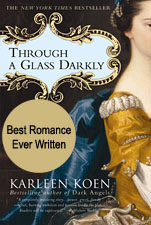I called an old soldier for Memorial Day. Elgin, I said, how are you? Karleen, he replied, it’s so good to hear from you.
Tell me about the war, I said. Oh, baby, he answered, I don’t like to talk about that. War is ugly, you know. And so we talked about his vegetables. In his mid-80s, hale and hearty, he’d just come in from the garden, which is full of squash and zucchini and tomatoes and onions and bell peppers.
He was stationed in the Philippines for two years in World War II. Old sepia-colored photographs show a lean, slouching, hawk-faced young man standing with a rifle slung over a shoulder near a pile of dead Japanese. A recent PBS documentary reminded that the battle for the Philippines was hard fought, often hand to hand, against a formidable and determined enemy who almost beat us.
I asked about Edward, his brother-in-law, whose old high school, senior year portrait, gently watercolored as was the style in those days, I have on my altar. Edward is handsome and young and smiling, seventeen, I think, in the portrait. He wears a suit and tie. His hair is neatly parted on one side. He too had been in the Philippines, but he was part of the three-month Battle of Bataan, which was lost. And he walked the long, hard, harsh, killing miles of the Bataan Death March, prosecuted as a war crime after the war ended. He survived and was on a prison ship on its way to Japan, when it was bombed by American forces. So he survived combat and a death march to die at sea. I think he was nineteen when he died. The baby of the family.
The news came to a little town in East Texas called Troupe. His mother lost her sanity for a time when the news came, and when she recovered she was never the same. That’s family legend anyway. Edward was my son’s great uncle. And Elgin is his grandfather.











